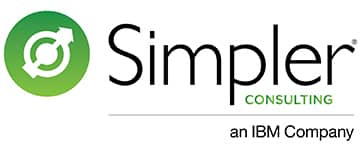
Powerless itself is inherently threatening. ~ Eric Anicich
Change in a Time of Stress
One of the challenging things about the current times is that they are not as stable or comforting as we would like or ever expected. Pandemics, staff and supply shortages, fake news, and now the threat of war…within our organizations, threats from outside generate fear, stress, and anxiety that can increase resistance to internal changes.
Even the most challenging circumstances can be easier to bear if we feel that we have some say in the outcome. On the other hand, even small stresses may become exaggerated if we feel we are helpless to have an influence on the situation. “Powerlessness itself is inherently threatening,” says Eric Anicich, an assistant professor of management and organization at the University of Southern California Marshall School of Business, as quoted in Robson.
“On a practical level, we can establish a sense of control by looking for small ways to ease the situation. If you have been forced to work from home, setting your own schedules and optimizing your space could help you to regain some sense of autonomy. Bosses should also help to empower their employees,” says Anicich. ‘They should try to take more of a hands-off approach as opposed to micromanaging employees.’
Most leaders know the dangers of micromanaging, and most try to avoid it. “But even if they’re not micromanaged, employees may still feel they don’t have a voice at the office, suggested a survey from Unify of 9,000 workers in the United States, U.K. and Germany. In the study, released in March, 95 percent of respondents said that their ideal future workplace wouldn’t be ‘controlling.’” Heather Huhman
Develop Strengths
The following is based on the Knoster change model amended

This blog originally appeared in Change Craft, a change management newsletter since 2018.
References:
Heather Huhman, 4 ways to give employees more of the control they want, Entrepreneur,
June 13, 2016
https://www.entrepreneur.com/article/277127
Employee Job Satisfaction and Engagement SHRM 2016 Survey
David Robson, Covid-19 has changed our lives in countless uncompromising ways. Yet we
hate feeling powerless – so how do we take back control? BBC Dec 14, 2020.
https://www.bbc.com/worklife/article/20201209-how-to-restore-your-sense-of-control-when-you-feel-powerless
Saahil Sood, Five Components of Organizational Change – The Knoster Model, Feb 11, 2019 https://medium.com/@saahilsood/5-components-of-organisational-change-the-knoster-model-84761404cbb7

Gail Sausser
Executive Coach
Simpler Consulting, an IBM Company
gsausser@us.ibm.com



